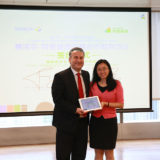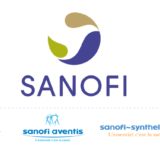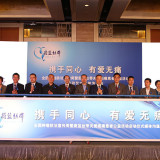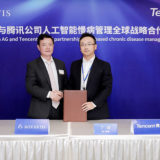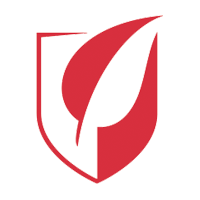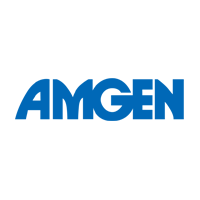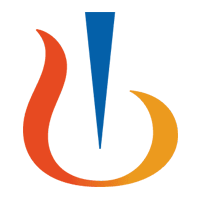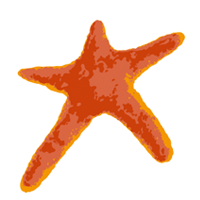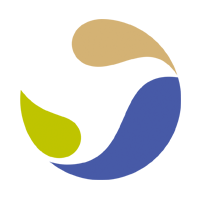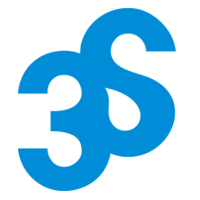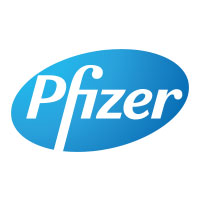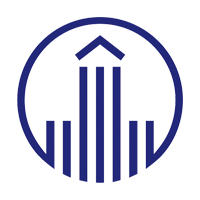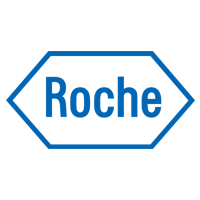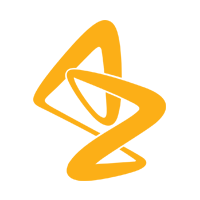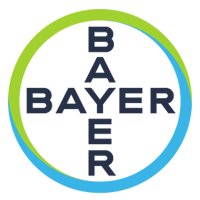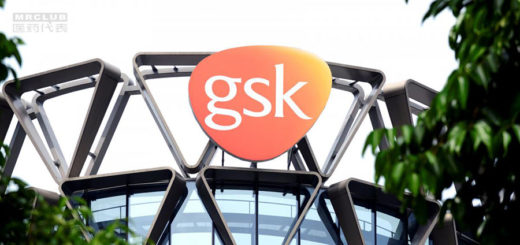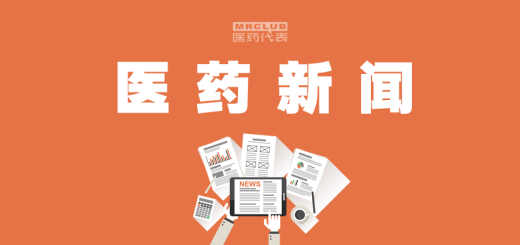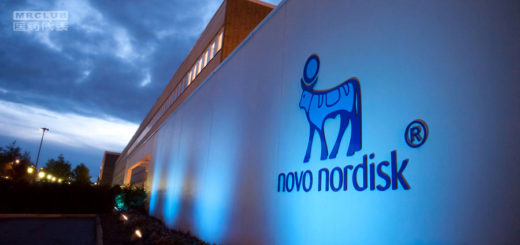药品推广行为准则(RDPAC 2006年版)
药品推广行为准则(2006年版)
Code of Practice on the Promotion of Pharmaceutical Products(2006 Revision)
中国外商投资企业协会药品研制和开发行业委员会
China Association of Enterprises with Foreign Investment R&D-Based Pharmaceutical Association Committee
2006年9月8日由药品研制和开发行业委员会全体会员通过
自2007年1月1日起生效
As adopted by RDPAC Member companies on September 8, 2006
Effective on January 1, 2007
药品推广行为准则2007年公司签名
Signatories to Code of PharmaceuticalMarketing Practices, Year 2007
1雅培制药(Abbott)
2德国安达(Altana)
3安斯泰来制药(Astellas)
4阿斯利康制药(AstraZeneca)
5百特医疗用品(Baxter)
6拜耳先灵医药(Bayer Schering Pharma)
7勃林格殷格翰药业(Boehringer Ingelheim)
8施贵宝制药(Bristol Myers Squibb)
9塞法隆(Cephalon)
10杰特生物医疗(CSL Biotherapies)
11第一制药(Daiichi)
12礼来(Eli Lilly)
13爱的发制药(Ethypharm)
14费森尤斯卡比医药(Fresenius Kabi)
15GE医疗(GE Healthcare)
16格兰泰制药(Grunenthal)
17葛兰素史克(GSK)
18益普生制药(Ipsen)
19丹麦灵北(Lundbeck)
20默克药业(Merck KGaA)
21默沙东(MSD)
22萌蒂制药(Mundipharma)
23诺华制药(Novartis)
24诺和诺德(Novo Nordisk)
25辉瑞制药(Pfizer)
26罗氏制药(Roche)
27赛诺菲安万特(Sanofi-Aventis)
28三共制药(Sankyo)
29先灵葆雅(Schering Plough)
30施维雅制药(Servier)
31苏威制药(Solvay)
32住友制药(Sumitomo)
33中美史克制药(T SmithKline&French)
34武田药品(Takeda)
35比利时优时比制药(UCB)
36惠氏制药(Wyeth)
37西安杨森制药(Xian-Janssen)
主席致词
2006年是药品研制和开发行药业委日会(RDPAC)具有里程碑意义的一年。在这一年里,我们修订了《药品推广行为准则》,建立7认识医药代表职业价值的平台。
首先,第三版《准则》是在1999年第一版和2002年第二版《准则》基础上修订的。在组织本次《准则》修订的时候,我们认真遵循2006年7月更新的《国际制药企业和协会联合会行为准则》(1FPMA准则)中的最佳惯例,在最新《准则》中增加7限制和透明度,以保证与医疗卫生专业人日的互动交流是正当和符合规范的。《准则》是自我约束(自律)的基础,自律对控制和规范在医疗卫生专业人员中的药品推广行为又起着关键作用。各会日公司都已完成新《准则》的培训,这种培训是对他们公司标准操作规程(SOP)和内部培训的补充。
第二个里程碑则是医药代表内部认证项目的正式出台。与英国和日本的项目类似,这个项目不仅包括《准则》(道德)方面的培训,而且还包括医学(如药理学、生理学,以及人体每个王要系统等)方面的培训。通过认证考试,使每个医药代表都具备必要的医学知识,以便开展专业的互动交流,使医疗卫生专业人员能够厦时得到最新的产品信息,如药品的使用、安全性、与其他产品的共同作用、适应症等,保证病人成为最大的受益者。
我们与医疗卫生管理部门和其他监管机构进行7一些强调《准则》和医药代表重要性的沟通。这些沟通支持中国医疗保健制度的健康发展和建正一个更加创新、更加诚信的社会。我们愿与有关各方一起继续努力,共同开展这方面的工作。
刘贞贤
中国外商投资企业协会
药品研制和开发行业委员会
主席
President’s Message
This is a milestone year for RDPAC in which activities related to the Code were conducted and a platform for the recognition of the value of professional Medical Representatives (MR) was built.
First, this is the third edition of our Code, building on the first edition (1999) and second edition (2002). While making the current revisions to our Code, we have closely followed the recently revised IFPMA Code and increased its transparency and limitations to ensure interactions with healthcare professionals are appropriate. The Code underpins the critical role of self discipline (self regulation) in contributing to the controls governing the promotion of medicines for healthcare professionals. Member companies have completed training on our new Code which supplements their own internal training and SOPs.
A second milestone is the completion and roll-out of our MR Certification Program. Similar to programs in the UK and Japan, this program includes not just training on the Code (ethics), but also training on the medical science (such as pharmacology, physiology and each major system in the body). Through a certification test, we will ensure that each MR possesses sufficient medical knowledge for professional interactions, thereby enabling healthcare professionals to receive the newest product information on drug use, including safety, combination with other products, indications, etc. with patients being the beneficiaries.
We have already undertaken several collaborative actions with healthcare and other regulatory agencies to highlight the importance of the Code and MRs. These actions support the healthy development of China_s healthcare system and transition to a more innovative and ethical society. We look forward to continuing to work together with all stakeholders.
Sincerely,
James Liu
RDPAC, President
简介
制药行业的使命是通过对新药的发现、开发和销售来造福于患者,而按照道德规范从事处方药的推广活动在完成这一使命的过程中占据着极其重要的地位。符合道德规范的药品推广能够帮助医疗卫生专业人士获得其所需要的信息、患者能够获得其所需要的药品.而药品也能以对患者的健康福利最大化的方式由医生处方、推荐和正确使用。
中国外商投资企业协会(CAEFl]药品研制和开发行业委员会(RDPAC)于2005年经民政部批准正式注册。目前药品研制和开发行业委员会有38家会员.他们均为在中国有相当大投资、以研液为基础的国际大型制药企业。药品研制和开发行业委员会的首要任务是推动中国制药行业的技术和经济发展蠢以将更多的创新药品带给中国的患者。
药品研制和开发行业委员会及其会员致力于从事各种造福患者的教育和推广活动.以及旨在提高药品使用水平的推广及合作项目。药品研制和开发行业委员会同时致力于维护医疗卫生专业人士开具处方时的独立性。制药行业有义务并有责任向医疗卫生专业人士提供有关自己产品的准确信息和培训.以使人们对处方药的正确使用有一个清楚的认识。制药行业与医疗卫生专业人士之间的任何联系均须有助于医疗卫生专业人士履行其对患者所负有的职业道德义务.并与该义务保持协调一致。制药公司在进行产品的推广活动时应保持高水平的道德标准.并应遵守现行的法律、法规及相关的执业要求。
《药品研制和开发行业委员会药品推广行为准则》(以下称((RDPAC准则》或“本准则”)依照中国相关法律法规1、为向医疗卫生专业人士进行符合道德规范的药品推广、以及会员与之进行的其他形式的互动交流制订了一系列准则。药品研制和开发行业委员会希望通过对本准则的推广.不仅能努力确保其会员从事符合高标准道德规范的药品推广行为.同时还能为其他有关各方.包括其他制药公司提供一个参考。该准则将于2007年1月1日起生效并取代((FRPIA药品推广行为准则(第二版.2002年)》。
药品研制和开发行业委员会鼓励制药公司之间的正当竞争。((RDPAC准则》并不会以有损公平竞争的方式限制药品推广活动。相反地.它旨在确保制药公司以诚实的态度进行药品推广活动.避免欺诈推广行为以及与医疗卫生专业人士存在利益冲突的行为.确保制药公司严格遵守有关法律法规。((RDPAC准则》的宗旨是积极营造一个良好的环境.使大众有信心能按药品本身的品质及患者的需要来选择药品。
Introduction
The ethical promotion of prescription pharmaceutical products is vital to the pharmaceutical industry_s mission of helping patients by discovering, developing and marketing new pharmaceutical products. Ethical promotion helps to ensure that healthcare professionals have access to information they need, that patients have access to the pharmaceutical products they need and that pharmaceutical products are prescribed and used in a manner that provides the maximum healthcare benefit to patients.
The R&D-based Pharmaceutical Association Committee (RDPAC) under the China Association of Enterprises with Foreign Investment (CAEFI) obtained its registration with the Ministry of Civil Affairs of China in 2005. Today RDPAC has thirty eight (38) Members, all of whom are major multinational, researchbased pharmaceutical companies with substantial investment in China. RDPAC_s primary mission is to promote the technological and economic development of the pharmaceutical industry in China in order to bring innovative medicines to Chinese patients.
RDPAC and its Members are committed to educational and promotional efforts that benefit patients and promotional programs and collaborations that enhance the practice of medicine. RDPAC also seeks to preserve the independence of the decisions taken by healthcare professionals in prescribing pharmaceutical products to patients. The pharmaceutical industry has an obligation and responsibility to provide accurate information and education about its products to healthcare professionals in order to establish a clear understanding of the appropriate use of prescription pharmaceutical products. Industry relationships with healthcare professionals must support, and be consistent with, the professional responsibilities healthcare professionals have towards their patients. Pharmaceutical companies must maintain high ethical standards when conducting promotional activities and comply with applicable legal, regulatory and professional requirements.
The RDPAC Code of Practice on the Promotion of Pharmaceutical Products (the“RDPAC Code”or “this Code”) sets forth standards for the ethical promotion of pharmaceutical products to healthcare professionals, and for Member companies_ interactions with them, in accordance with relevant Chinese laws and regulations1. Through the promotion of this Code, RDPAC not only seeks to ensure its Members maintain high ethical promotional practices, but this Code can also serve as a reference for related stakeholders, including other pharmaceutical companies. Effective January 1, 2007, this Code replaces the FRPIA Code of Pharmaceutical Marketing Practices (2nd Edition, 2002).
RDPAC encourages competition among pharmaceutical companies. The RDPAC Code is not intended to restrain the promotion of pharmaceutical products in a manner that is detrimental to fair competition. Instead, it seeks to ensure that pharmaceutical companies conduct such promotion in a truthful manner, avoiding deceptive practices and potential conflicts of interest with healthcare professionals, and in compliance with applicable Chinese law. The RDPAC Code thereby aims to foster an environment where the general public can be confident that choices regarding their pharmaceutical products are being made on the basis of the merits of each product and the healthcare needs of patients.
与药品推广活动相关的法律法规有:
- 《药品营理法》(2001年12月1日起施行)
- 《药品管理法实施条靓》(2002年9月1 5日起施行)
- 《药品注册营理办法》(2005年5月1日起施行)
- 《广告法》(1 995年2月1日起施行)
- 《反不正当竞争法》(1993年12月1日起施行)
- 《刑法》(1 997年10月1日起施行)
- 《药品不良反应报告和监测管理办法》(2004年3月4日起施行)
- 《处方药与菲处方药分类管理办法(试行)》(2000年1月1日起施行)
- 《药品说明书和标签管理规定》(2006年6月1日起施行)
- 《国家食品药品监督管理局关于进一步规范药品名称管理的通知》(2006年6月1日起施行)
The laws and regulations regulating the promotion of pharmaceutical products include the following:
– The Drug Administration Law (revised December 1, 2001);
– The Implementation Regulation of the Drug Administration Law (effective September 15, 2002);
– Drug Registration Regulation (revised May 1, 2005);
– The Advertisement Law (effective February 1, 1995);
– The Anti-Unfair Competition Law (effective December 1, 1993);
– The Criminal Code (effective October 1, 1997);
– Regulation for the Administration of Adverse Drug Reaction Report and Monitoring (effective March 4, 2004);
– Temporary Regulation on the Administration of Prescription and OTC Drugs (effective January 1, 2000);
– Regulation on Drug Insert Sheets and Labeling (effective June 1, 2006);
– SFDA Notice to Further Standardize the Drug Name (effective June 1, 2006).
RDPAC准则
第1条 目标和范围
1.1 目标
((RDPAC准则》为向医疗卫生专业人士进行符合道德标准的药品推广订立标准和准则.以确保会员与医疗卫生专业人士所进行的互动交流行为正当和符合规范.同时也被公众认可为正当和符合规范。
1.2 范围
((RDPAC准则》的规范对象是针对医疗卫生专业人士进行的、处方药的推广活动。
1.2.1 定义
(a)“推广”指由某会员通过各种方式——包括口头、书面、电子形式及互联网等进行的.以促进其药品的处方、推荐、供应、用于病人或为病人自用等为目的的.针对医疗卫生专业人士所进行的或组织、赞助的任何行为或活动。
(b)“医疗卫生专业人士”指医疗、牙科、药剂或护理领域中的专业人员.或其他任何在其专业活动中可能开具药品处方或推荐、采购、供应药品或将药品用于病人的其他人员。
(c)“药品”在~RDPAC准则》下的含义同《药品管理法》第102条对“药品”的定义。
(d)“会员公司”(“会员”)指药品研制和开发行业委员会的会员.而成为会员的条件之一就是遵守本《RDPAC准则》。
1.3 不适用情形
本准则不适用于下列活动:
(a)直接针对一般公众的处方药推广(即DTC广告)(目前,中国法律禁止这类推广活动),
(b)不需开具处方的自我诊疗药品(OTC)的推广,
(c)价格或其他有关药品供应的商务条款,
(d)临床实验活动(见第2 5条),及
(e)会员提供非推广类资讯.比如旨在回答有关某个药品的具体问题的往来函件。
RDPAC Code
ARTICLE 1 OBJECTIVE AND SCOPE
1.1 Objective
The RDPAC Code sets out standards for the ethical promotion of pharmaceutical products to healthcare professionals to ensure that Member companies’interactions with healthcare professionals are appropriate and perceived as such.
1.2 Scope
The RDPAC Code covers the promotion to healthcare professionals of prescription-only pharmaceutical products.
1.2.1 Definitions
(a) “Promotion”means any activity undertaken, organized or sponsored by a Member company which is directed at healthcare professionals to promote the prescription, recommendation, supply, administration or consumption of its pharmaceutical product(s) through all means, including oral, written, electronic, including internet communication.
(b) “Healthcare Professional”means any member of the medical, dental, pharmacy or nursing professions or any other person who in the course of his or her professional activities may prescribe, recommend, purchase, supply, or administer a pharmaceutical product.
(c) “Pharmaceutical product”as used in the RDPAC Code has the meaning of _Drugs_ set forth in Article 102 of the Drug Administration Law.
(d) “Member company” (“Member”) means a member of RDPAC, one of the conditions of the RDPAC membership being compliance with this Code.
1.3 Exclusions
This Code does not seek to regulate the following activities:
(a) promotion of prescription-only pharmaceutical products directly to the public, i.e. direct to consumer advertising (currently such promotion not allowed by Chinese law);
(b) promotion of self-medication products that are provided _over the counter_ without prescription;
(c) pricing or other trade terms for the supply of pharmaceutical products;
(d) the conduct of clinical trials (See Article 2.5); and,
(e) the provision of non-promotional information by Members, one example being correspondence needed to answer a specific question about a particular pharmaceutical product.
第2条 总则
2.1 互动交流的基本原则
会员与医疗卫生专业人士建立联系的目的是造福患者和提高医疗水平。两者之间的互动交流的重点应集中在由前者向后者传达药品信息、提供科学及教育方面的资讯、以及前者为医学研究和教育提供支持等方面。
2.2 医疗卫生专业人士的独立性
会员不得向医疗卫生专业人士提供金钱利益或其替代物(包括捐赠、奖学金、补助、赞助、咨询合同及教育或其他与其执业相关的名目)以换取后者对其药品的处方、推荐、采购、供应及对病人使用.或在将来继续进行上述活动的承诺,也不得以任何方式或条件承诺提供或提供可能对医疗卫生专业人士的处方行为产生不正当影响的其他任何利益。
会员可以与医疗卫生专业人士签约.由后者提供真实的咨询服务.并向其支付合理的报酬及食宿和差旅补偿,但此类咨询服务提供的方式或条件均不应当对有关医疗卫生专业人士的处方行为产生不正当影响。
ARTICLE 2 GENERAL PRINCIPLES
2.1 Basis of Interaction
Members_ relationships with healthcare professionals are intended to benefit patients and to enhance the practice of medicine. Interactions should be focused on informing healthcare professionals about products, providing scientific and educational information and supporting medical research and education.
2.2 Independence of Healthcare Professionals No financial benefit or benefit-in-kind (including grants, scholarships, subsidies, support, consulting contracts or educational or practice related items) may be provided or offered to a healthcare professional in exchange for prescribing, recommending, purchasing, supplying or administering products or for a commitment to continue to do so. Nothing may be offered or provided in a manner or on conditions that would have an inappropriate influence on a healthcare professional’s prescribing practices.
Healthcare professionals may be engaged to provide genuine consultancy services for reasonable compensation and reimbursement of reasonable travel, lodging and meal expenses, however, such services should not be offered or provided in a manner or conditions that would have an inappropriate influence on a healthcare professionals prescribing practices.
2.3 药品的正确及适当使用
药品推广活动应能通过客观介绍(而非夸大)药品的性能而促进药品的正确及适当使用。
2.4 中国法律法规及其他地方法规
在任何情况下.会员应遵守中国现行的相关法律法规,而且在任何国家制作推广材料或赞助、举办推广活动之前.会员均应检索当地相关法律法规及行业准则的规定和要求.
2.5 推广活动的透明性
会员不得对其推广行为和活动作任何形式的隐藏或掩饰.不得将临床评估、药品上市后的监测和反应项目及获得上市许可后的研究活动等转为变相的药品推广。上述评估、项目以及研究均须以科学和教育为目的。对于由某公司赞助的、与药品及其使用相关的材料.无论其性质是否属于推广.均应明示该材料系由某公司赞助。当公司以资助或其他方式安排将其推广材料刊登在杂志上.这些推广材料不得有使人误解其为独立的编者评论之嫌。
2.6 药品获得上市许可之前的互动交流,及在药品标明的适用范围之外使用药品
会员在某药品获得中国药品主管部门颁发的上市(生产或进口)许可之前.不得从事为在中国上市使用该药品而进行的推广活动。
上述规定并不排斥科学界及一般公众对科技和医学发展动态的知情权。它既不限制就某种药品的科学信息作充分适当的沟通的行为,包括通过科技专业媒体或普通媒体或在科学交流会议上公布有关该药品的调研结果.也不限制按相关法律法规的要求就某种药品向股东或其他人作公开的信息披露。
2.3 Appropriate Use
Promotion should encourage the appropriate use of pharmaceutical products by presenting them objectively and without exaggerating their properties.
2.4 Chinese Laws and other Local Regulations In all cases, all applicable Chinese laws and regulations (Chinese law) must be observed and Members have a responsibility to check all relevant laws, local regulations and industry codes in advance of preparing promotional material or sponsoring and organizing events in any specific country.
2.5 Transparency of Promotion Promotion should not be disguised. Clinical assessments, post-marketing surveillance and experience programs and post-authorization studies must not be disguised promotion. Such assessments, programs and studies must be conducted with a primarily scientific or educational purpose. Material relating to pharmaceutical products and their uses, whether promotional in nature or not, which is sponsored by a company should clearly indicate by whom it has been sponsored. Where a company pays for or otherwise secures or arranges the publication of promotional material in journals, such promotional material must not resemble independent editorial matter.
2.6 Pre-Approval Communications and Off-label Use
No pharmaceutical product shall be promoted for use in China until drug registration approval for marketing purposes has been granted by Chinese drug administration authorities.
This provision is not intended to prevent the right of the scientific community and the public to be fully informed concerning scientific and medical progress. It is not intended to restrict a full and proper exchange of scientific information concerning a pharmaceutical product, including appropriate dissemination of investigational findings in scientific or lay communications media and at scientific conferences. Nor should it restrict public disclosure of information to stockholders and others concerning any pharmaceutical product, as may be required or desirable under applicable laws and regulations.
第3条 推广信息的标准
3.1 产品信息的一致性
推广活动所传递的信息应与中国药品主管部门批准的药品标准相一致。中国的医疗卫生专业人士应当获得与在发达国家传播的药品信息相类似的信息。
3.2 准确和不误导
推广信息应当清楚、易理解、准确、全面、公正、客观、完整.足以使相对人能就有关药品的治疗价值形成自己的观点。药品推广信息应以对所有相关证据所作的最新评估为依据.并清楚地反映出相关证据事实。推广信息不应通过曲解、夸大、过分强调、忽视、贬低竞争对手或其他方式误导相对人。推广者应尽最大努力避免推广信息出现模糊不清的情况.避免使用绝对的和无所不包的论断,且一般应避免使用诸如“安全”、“无副作用”之类的描述性词句.如需使用则必须有充分的科学依据。
3.3 实证
药品推广信息应能通过对已经批准的药品说明书或科学证据的引用而得到证实。当医疗卫生专业人士要求提供上述科学证据时.推广者应向其提供。公司应以客观态度对待所有要求获取有关药品信息的善意请求.并应根据不同查询者的具体情况提供充分适当的药品信息。
ARTICLE 3 STANDARDS OF PROMOTIONAL INFORMATION
3.1 Consistency of Product Information Promotion should not be inconsistent with pharmaceutical product information approved by Chinese drug administration authorities. Chinese healthcare professionals should have access to similar product information to that being communicated in developed countries.
3.2 Accurate and Not Misleading Promotional information should be clear, legible, accurate, balanced, fair, objective and sufficiently complete to enable the recipient to form his or her own opinion of the therapeutic value of the pharmaceutical product concerned. Promotional information should be based on an up-to-date evaluation of all relevant evidence and reflect that evidence clearly. It should not mislead by distortion, exaggeration, undue emphasis, omission or disparaging the competitor(s) or in any other way. Every effort should be made to avoid ambiguity. Absolute or all-embracing claims should be avoided, and descriptions such as ‘safe’and‘no side effects’should generally be avoided and should always be adequately qualified.
3.3 Substantiation
Promotion should be capable of substantiation either by reference to the approved labeling or by scientific evidence. Such evidence should be made available on request to healthcare professionals. Companies should deal objectively with requests for information made in good faith and should provide data which are appropriate to the source of the inquiry.
第4条 印刷推广材料
4.1 内容要求
在遵守中国法律其他相关规定的前提下.除4 2条所列情形外.所有印刷推广材料均应清晰易懂.并包括以下必备内容:
(a)药品名称(通常为药品的商品名),
(b)药物活性成份(应尽可能地使用经批准的名称),
(c)制药公司或药品代理公司的名称及地址,
(d)广告制作的日期,
(e)“处方信息概要”.包括已经批准的一项或多项适应症、用法用量.以及对禁忌症提示和副作用的简要说明。
科学或医学文章的翻印本在单独使用时不构成药品推广材料.因其非由制药公司制作,但如果将它们连同由制药公司制作的其他文件一起发送到医疗卫生专业人士手中,则这些翻印本就转变为药品推广材料。一旦某个推广材料中提及或者包含了科学或医学的论文或研究报告.或这些论文报告与推广材料一起被发送给相对人时.推广人均应对论文或报告的出处作清楚说明。
对任何选自于某论文或研究报告、并被包含在推广材料中.或与推广材料一起被发送给相对人的非文字信息(包括图表、示图、照片或者表格等)的翻印.推广人均须清楚地注明出处.且翻印应忠实于原文。
4.2 提示性广告
“提示性”广告是指仅包含药品名称和简要提示药品适应症的简短广告。“提示性”广告可以省略上述4 1条中所提到的“处方信息概要”。
ARTICLE 4 PRINTED PROMOTIONAL MATERIALS
4.1 Content Requirements Subject to any additional requirements under Chinese law, all printed promotional materials other than those covered in 4.2 below must be legible and include:
(a) the name of the product (normally the brand name);
(b) the active ingredients, using approved names where they exist;
(c) the name and address of the pharmaceutical company or its agent responsible for marketing the product;
(d) date of production of the advertisement;
(e) “abbreviated prescribing information” which should include an approved indication or indications for use together with the dosage and method of use; and a succinct statement of the contraindications precautions and side effects.
Reprints of scientific and medical articles, when used as stand-alone documents, are not developed by pharmaceutical companies and as such cannot be considered as promotional materials. If, however, they are presented to a healthcare professional together with other, company originated documents, they then become promotional materials. In all cases, where promotion refers to, includes, or is presented together with scientific or medical articles or studies, clear references should be provided. Any reprint of artwork (including graphs, illustrations, photographs or tables) taken from articles and included or presented with promotional materials should clearly indicate the source of the artwork and be faithfully reproduced.
4.2 Reminder Advertisements
A“reminder” advertisement is defined as a short advertisement containing no more than the name of the product and a simple statement of indications to designate the therapeutic category of the product. For“reminder” advertisements, “abbreviated prescribing information” referred to in Article 4.1 above may be omitted.
第5条 电子版推广材料,包括音像制品
电子版推广材料应遵守与印刷形式推广材料相同的各项要求。就与药品有关的网页而言:
(a)制药公司的名称以及网页推广所针对的受众应一目了然,
(b)内容应当适合于其所针对的受众,
(c)其制作(内容、链接等)对其所针对的受众而言应适当、醒目,
(d)针对某个国家市场的信息应符合当地的法律法规。
第6条 与医疗卫生专业人士的互动交流
6.1 互动交流活动
6.1.1以科学和教育为目的
对任何由会员组织或赞助的、针对医疗卫生专业人士所进行的各种座谈会、代表大会及其他推广的、科学的或专业的会议(以下统称“互动交流活动”)而言.其目的和重点都只能是向后者传递有关药品信息.以及提供科学或教育方面的资讯.且应严格遵守本准则2.2条的规定。
6.1.2涉及到出国的互动交流活动
会员只可在理由充分的情况下组织或赞助医疗卫生专业人士赴中国境外参加互动交流活动,所谓“理由充分”是指:
(a)有关活动所邀请的大部分医疗卫生专业人士都来自境外.且出于会议安排及安全的考虑.在境外举办该活动更为合理,或者
(b)作为有关活动主题的相关资源或专家均在中国境外。
6.1.3互动交流活动中的药品推广信息
如果推广者在国际的科学大会或座谈会上需要通过展示窗或直接分发材料的方式.向出席者传送某个,些尚未在会议所在国注册、或虽注册但内容和条件与其他国家有所不同的药品的推广信息.则该推广行为还须同时满足以下几个条件:
(a)会议本身应当是真正意义上的国际科学会议.其中大多数讲演者和出席者都应来自会议所在国,地区以外的其他国家,
(b)尚未在会议所在国,地区注册的药品的推广材料(不包括推广辅助用品)中应包含该药品已在哪些国家获得注册的说明.同时声明该药品尚未在会议所在国,地区获得注册,
(c)如某药品虽然在会议所在国,地区获得上市许可.但其推广材料中含有经会议所在国,地区以外的其他国家批准的新的处方信息(适应症、警告等).则推广材料应同时声明该药品的注册内容和条件在各国之间有所不同,
(d)推广材料中应明示药品已获注册的国家、及药品尚未在会议所在国,地区获得注册的事实。
6.2 赞助
会员在满足以下条件的情况下可赞助医疗卫生专业人士出席互动交流活动:
(a)有关互动交流活动符合本准则6.5条关于招待活动的规定,
(b)对医疗卫生专业人士赞助应限于对旅行、餐费、住宿及会议注册费的支付,
(c)不得对医疗卫生专业人士出席会议的时间作任何补偿,
(d)对医疗卫生专业人士提供赞助不得以其对某药品的处方、推荐或推广等义务为条件。
ARTICLE 5 ELECTRONIC MATERIALS, INCLUDING AUDIOVISUALS
The same requirements shall apply to electronic promotional materials as apply to printed materials. Specifically, in the case of pharmaceutical product related websites:
(a) the identity of the pharmaceutical company and of the intended audience
should be readily apparent;
(b) the content should be appropriate for the intended audience;
(c) the presentation (content, links, etc.) should be appropriate and apparent to the intended audience; and
(d) country-specific information should comply with local laws and regulations.
ARTICLE 6 INTERACTIONS WITH HEALTHCARE PROFESSIONALS
6.1 Events
6.1.1 Scientific and Educational Objectives The purpose and focus of all symposia, congresses and other promotional, scientific or professional meetings (an“Event”) for healthcare professionals organized or sponsored by a company should be to inform healthcare professionals about products and/or to provide scientific or educational information and should be conducted in full compliance with Article 2.2.
6.1.2 Events Involving Foreign Travel A Member can only organize or sponsor an event for healthcare professionals outside China if it is justified, i.e.:
(a) a significant proportion of the invited healthcare professionals are from outside China, and it makes greater logistical or security sense to hold the event in another country; or (b) the relevant resource or expertise that is the object or subject matter of the Event is located outside of China.
6.1.3 Promotional Information at Events
Promotional information which appears on exhibition stands or is distributed to participants at international scientific congresses and symposia may refer to pharmaceutical products which are not registered in the country where the Event takes place, or which are registered under different conditions, provided that the following conditions are observed:
(a) The meeting should be a truly international, scientific Event with a significant proportion of the speakers
and attendees from countries other than the country where the Event takes place;
(b) Promotional material (excluding promotional aids) for a pharmaceutical product not registered in the country of the Event should be accompanied by a suitable statement indicating the countries in which the product is registered and make clear that such product is not available locally;
(c) Promotional material which refers to the prescribing information (indications, warnings, etc.) authorized in a country or countries other than that in which the Event takes place but where the product is also registered, should be accompanied by an explanatory statement indicating that registration conditions differ internationally; and
(d) An explanatory statement should identify the countries in which the product is registered and make it clear that it is not available locally.
6.2 Sponsorship
Members may sponsor healthcare professionals to attend Events provided such sponsorship is in accordance with the following requirements:
(a) the Event complies with the hospitality requirements in this Code as described in Article 6.5;
(b) sponsorship to healthcare professionals is limited to the payment of travel, meals, accommodation and registration fees;
(c) no payments are made to compensate healthcare professionals for time spent in attending the Event; and,
(d) any sponsorship provided to individual healthcare professionals must not be conditional upon an obligation to prescribe, recommend or promote any pharmaceutical product.
6.3 客人
会员不得支付与所邀请的医疗卫生专业人士随行客人的任何费用。
6.4 向讲演者付费
如果医疗卫生专业人士按照其与公司就某互动交流活动签订的书面合同提供了真实的讲演服务.则公司可以向其支付合理的报酬.并补偿其包括旅行费和住宿费在内的、实际发生的合理费用。
6.5 招待
6.5.1 适当的地点
互动交流活动均应在适当的地点举办.以有助于实现科学教育的目标及会议本身的目的。公司应避免选择名胜或铺张奢侈的地点举办会议。此外.本准则第6条的其他规定也同时应适用于本条。
6.5.2 招待的限制条件
招待活动应限于那些附属于互动交流活动主题的餐饮活动.且:
(a)只能向互动交流活动的参加者提供而不能向其客人提供,
(b)按当地标准衡量应是中等水平的和合理的。
6.5.3 娱乐
会员不应提供或支付任何单独进行的娱乐或其他休闲社交活动。在互动交流活动中.可以提供附属于相关活动主题的、适度的娱乐或其他休闲社交活动。
6.3 Guests
Members should not pay any costs associated with individuals accompanying invited healthcare professionals.
6.4 Payments for Speakers and Presenters
Payments of reasonable fees and reimbursement of out-of-pocket expenses against receipt, including travel and accommodation, may be provided to healthcare professionals who are providing genuine services as speakers or presenters on the basis of a written contract including reasonable compensation
terms with the company at the Event.
6.5 Hospitality
6.5.1 Appropriate Venue
All Events should be held in an appropriate venue that is conducive to the scientific or educational objectives and the purpose of the Event or meeting. Members should avoid using renowned or extravagant venues. The additional requirements set forth in Article 6 of this Code also apply accordingly.
6.5.2 Limits of Hospitality
Hospitality should be limited to refreshments and/or meals incidental to the main purpose of the Event and should only be provided:
(a) to participants of the Event and not their guests; and
(b) if it is moderate and reasonable as judged by local standards.
6.5.3 Entertainment
No stand-alone entertainment or other leisure or social activities should be provided or paid for by Members. At Events, entertainment or other leisure or social activities of modest nature which is secondary to the main purpose of the Event is allowed.
6.6礼品和医疗用品
6.6.1 现金
会员不得向医疗卫生专业人士提供现金或者现金替代物。
6.6.2 个人礼品
会员不得向医疗卫生专业人士提供用于个人目的的礼品.包括但不限于音乐光盘、DVD、体育或者娱乐项目的入场券、绘画作品、精装食品、电子产品等。
6.6.3 推广辅助用品
在满足“最小价值”及“与医疗专业服务相关”两项条件的前提下.会员可以向医疗卫生专业人士以及与之相关的行政人员提供推广辅助用品或品牌提示用小物品.比如钢笔,圆珠笔、记事簿,签、手术手套等。
6.6.4 医用物品
会员可以向医疗卫生专业人士免费提供医用物品.只要这些物品价值适度.且有助于医疗服务的提供和有利于患者的利益。比如实验室内陈放的解剖模型或医学书籍等。
6.6.5 风俗礼品
会员可偶尔在法定节日(即元旦、春节、五一劳动节、国庆节)及中秋节向医疗卫生专业人士提供少量与其医疗执业不相关的非贵重礼品。
6.6 Gifts and Items of Medical Utility
6.6.1 Cash
Payments in cash or cash equivalents must not be offered to healthcare professionals.
6.6.2 Personal Gifts
Subject to Article 6.6.5, gifts for the personal benefit of healthcare professionals (including, but not limited to, music CDs, DVDs, sporting or entertainment tickets, paintings, food baskets, electronic items) must not be provided or offered.
6.6.3 Promotional Aids
Promotional aids or reminder items may be provided or offered to healthcare professionals and appropriate administrative staff, provided the gift is of minimal value and relevant to the practice of the healthcare professional. Possible examples of appropriate items include: pens, notepads and surgical gloves.
6.6.4 Items of Medical Utility
Items of medical utility may be offered or provided free of charge provided that such items are of modest value and are beneficial to the provision of medical services and for patient care. Items might include
an anatomical model for use in an examination room, or medical textbooks.
6.6.5 Cultural Courtesy Gifts
An inexpensive gift not related to the practice of medicine may be given on an infrequent basis to healthcare professional in acknowledgment of the official holidays of China(i.e. New Year, Spring Festival, Labor Day, National Day) and the Mid Autumn Festival.
第7条 样品
7.1 允许发送的样品
在遵守中国法律法规的前提下.会员可以向医疗卫生专业人士可免费提供其药品的样品.以提高对患者健康利益的保护。会员应在样品上清楚地标注“样品”或“非卖品”字样.且不得转卖或以其他方式滥用样品。
7.2 有效控制和责任落实
会员应对提供给医疗卫生专业人士的样品建立有效的控制和责任机制.包括对已交付给医药代表的样品实施监控。
第8条 医药代表
各会员应确保其医药代表.包括通过与第三方签订的合同所雇用的工作人员.以及其他因从事与其药品推广相关的活动而需与医疗卫生专业人士、药剂师、医院或者其他的医疗卫生机构发生往来的公司代表(以下统称“医药代表”)满足以下条件:
(a)以负责任和符合道德规范的方式履行职责,
(b)接受过专业培训.并已按照 “药品研制和开发行业委员会医药代表认证项目”所规定的期限和要求得到认证.具备充分的医学及技术知识.能以准确、负责任及符合道德规范的方式介绍其所代表的公司药品的相关信息的,
(c)在遵守中国法律法规的前提下.在每次拜访医疗卫生专业人士时应向拜访对象提供其所代表的药品的相关信息.并向其公司反馈其所收集到的任何有关公司药品的使用方面的信息.尤其是副作用报告,
(d)确保对医疗卫生专业人士、药弃4师、医院、以及其他医疗卫生机构的拜访频率、拜访时间、停留时间.及拜访的方式等符合中国法律法规及经卫生主管部门认可的程序规定。
各会员均应设立一个技术或医学服务部门.以对公司的药品信息管理负责。该技术或医学服务部门须配备一名医生或药剂师.以负责推广材料发布前的审批工作。
会员应敦促医药代表遵守本准则.并应在违反本准则的情况发生时采取纠正措施。
对医药代表薪金制度的规定不应构成对医生正确开立处方的妨碍。
ARTICLE 7 SAMPLES
7.1 Samples Permitted
Subject to any additional requirements of Chinese laws, free samples of a pharmaceutical product may be supplied to healthcare professionals in order to enhance patient care. Samples should clearly be identified as “Sample” or “Not for Sale” and should not be resold or otherwise misused.
7.2 Control and Accountability
Members should have adequate systems of control and accountability for samples provided to healthcare professionals including how to look after such samples whilst they are in possession of medical representatives.
ARTICLE 8 MEDICAL REPRESENTATIVES
Each Member shall ensure that its medical representatives, including personnel retained by way of contract with third parties, and any other company representatives who call on healthcare professionals, pharmacies, hospitals or other healthcare facilities in connection with the promotion of pharmaceutical products (each, a“Medical Representative”):
(a) approach their duties responsibly and ethically;
(b) be professionally trained, and certified according to the timetable and requirements/standards set in the RDPAC Medical Rep Certification Program, and possess sufficientmedical and technical knowledge to present information on their company’s products in an accurate, responsible and ethical manner;
(c) during each visit, and subject to any additional requirements of Chinese laws, provide the person visited with relevant information on the products they present, and should transmit back to their company any information they receive in relation to the use of their company_s products, particularly
reports of side effects;
(d) ensure that the frequency, timing and duration of visits to healthcare professionals, pharmacies, hospitals or other healthcare facilities, together with the manner in which they are made, comply with Chinese laws and relevant procedures officially recognized by the healthcare authorities.
Each Member should establish a scientific / medical service in charge of information about its pharmaceutical products. This scientific / medical service must include a doctor or, where appropriate, a pharmacist who will be responsible for approving any promotional material before release.
Each Member should promote the observance of this Code to its Medical Representatives and take corrective actions with those who are in breach of this Code. The remuneration systems for Medical
Representatives of each Member should not be such as to adversely influence the proper prescribing of pharmaceutical products by the physician.
第9条 其他
药品研制和开发行业委员会负责对本准则的有关条款制订一系列具体的执行标准。附件一对该等标准作了详细描述。
第10条 投诉
所有违反本准则的投诉均应按附件二所规定的具体程序及规则处理.
ARTICLE 9 MISCELLANEOUS
RDPAC establishes a set of standards for relevant provisions of this Code, described and attached hereunder as Attachment 1.
ARTICLE 10 COMPLAINTS
Complaints relating to infringements of the RDPAC Code will be handled according to the proceedings and rules which are described and attached hereunder as Attachment 2.
附件一 推广行为的有关标准
1.在第6.2(b)及6.4条下,会员可为座谈或科学会议的参会者提供本地,市的交通补助费.标准为每次活动按单程不超过1 00元人民币的发票金额报销双程路费。就住宿费而言.公司可为参会者报销房费(包括房费所包含的税和早餐).但不得报销房费以外的其他消费(如迷你酒吧和客房服务等)。旅行费可以包括地面交通费.以及相关的税和保险费等等。此外.公司应采取积极措施确保其发到医疗卫生专业人士手中的车,船,机票被用于既定的目的。
2.第6.5.2条下的“中等水平的和合理的”应解释为每人每餐不超过300元人民币。在少数特殊情况下.经公司总经理对超标用餐的事由事先批准后.可以允许每人每餐不超过500元人民币。
3.第6.5.3条下的“适度”应解释为对高度知名、不适当、或昂贵的娱乐项目的禁止。比如请著名的电视或流行音乐歌星表演就是不适度的.而当地民族歌舞的表演或当地歌手的演出则可以接受。此外,打高尔夫球及与之相关的娱乐是被禁止的,因为这些活动是与科学教育推广活动不相干的、单独进行的娱乐活动。本条中的“附属于”是指.在满足第6.5.2条有关“赞助”的限制性规定和本条有关不得提供或支付单独进行的娱乐休闲社交活动的
前提下.招待活动(包括娱乐休闲社交活动)所占用的时间不得超过互动交流活动本身所占用时间(旅途时间除外)的30%。
4.第6.6.3条下的“最小价值”应解释为每件物品的价值不超过100元人民币。
5.对第6.6 4条下的“价值适度”的解释应按中国卫生部适时颁布的有关医疗卫生机构接受捐赠或赞助的有关规定执行。
6.第6.6.5条下的“非贵重礼品”可解释为每人每个节日不超过200元人民币的风俗礼品。
Attachment 1 Standards of Promotional Practice
1. For the purpose of Article 6.2(b) and 6.4, local transportation to attend symposia, congresses and meetings may be reimbursed by Members for both ways of equal cost, against a receipt of one-way transportation not exceeding 100 RMB per event. For accommodation, companies are allowed to cover room charges (including taxes and breakfast), but not incidentals (minibar, room-service etc.). Travel costs may include ground transportation, taxes and travel insurance. Also, companies should make affirmative efforts to ensure that tickets issued to healthcare professionals be used appropriately for its intended purpose.
2. “Moderate and reasonable” in Article 6.5.2 should be interpreted as not more than three hundred (300) RMB per person per meal, with the exception for rare occasions where a maximum of five hundred (500) RMB per person per meal is allowed with prior approval and appropriate justification by the GM of the company.
3. “Modest nature” in Article 6.5.3 should be interpreted as prohibiting high profile, inappropriate or expensive entertainers or activities. For example, an appearance by a well known TV on pop star would not be considered as modest whereas a folk dance display or perfor mance by a local singer would be acceptable. Also, golf outings and entertainments are prohibited, as they are considered as stand alone leisure activities unrelated to scientific and educational promotion. “Secondary”here shall mean that, subject to the restrictions on _sponsorship_ under Article 6.5.2 and the prohibition against the provision or payment for any stand-alone entertainment or other leisure or social activities under this Article, the total time spent on
hospitality, including entertainment and other leisure or social activities, should
not exceed thirty percent (30%) of that of the Event itself excluding travel time.
4. “Minimal value” in Article 6.6.3 should be interpreted as not more than one hundred (100) RMB in value per item.
5. For interpretation of “modest value” in Article 6.6.4, any provisions on medical institutions accepting donation or sponsorship which may be issued by the Ministry of Health should be strictly followed.
6.“Inexpensive gift”in Article 6.6.5 should be interpreted as gift of not more than two hundred (200) RMB in value per person per holiday.
附件2:投诉和争议解决
1.总则
对违反本准则的行为所提出的善意投诉应受到鼓励。本附件所规定的投诉程序对所有医疗卫生专业人士、任何公司或公众成员公开。
RDPAC应确保在其网站公开有关本准则的信息及依据本准则进行投诉的程序.并应积极参与“lFPMA准则遵守全球网络”的有关工作.以便:
(a)对世界范围内有关行业准则的遵守与执行的最佳操作模式进行交流,
(b)通过鼓励公司和行业协会之间的充分交流和协作以加强对违规行为的预防工作,
(c)为有关行业自律行为的积极交流提供平台,
(d)建立为本准则投诉程序所需的、精于准则遵守的专家库并且
(e)激发有关制药行业推广行为所面临的新的挑战的广泛讨论。
2.投诉的程序
投诉须以书面或电子邮件的方式进行.并须包括以下内容:
(a)投诉人的身份和通讯地址 (包括传真号码、电子邮箱)。应投诉人的要求.RDPAC执行总监应对其身份向所有人保密。
(b)被投诉有违反准则之嫌的会员公司(以下称“被诉公司”)的名称.及投诉所涉及的具体产品的名称,
(c)作为投诉标的的广告或其他行为、印刷材料或其他证据的具体来源,可能时投诉人应提供所投诉材料的复印件,
(d)所投诉的违反本准则行为所发生的日期,
(e)对投诉的有关事实作简要陈述.并尽量指明投诉所依据的本准则的具体条款。
所有的投诉信函均寄至以下地址:
中国外商投资企业协会药品研制和开发行业委员会执行总监收
中国北京建外大街22号赛特大厦1301室
电话:+86(10)6526 3488
传真:+86(10)6526 3487
网址:http :\\www.rdpac.org
电子邮件:[email protected]
Attachment 2: Complaints and Dispute Resolution
1. General Provisions
Genuine complaints relating to infringements of the Code are encouraged. The complaint procedure provided herewith is open to any healthcare professional, a company or member of the public, acting in good faith within the spirit and intentions of the Code.
RDPAC shall ensure that its website contains information on this Code and the procedure to make a complaint under this Code, and shall actively engage itself in the IFPMA Code Compliance Network in order:
(a) to exchange best practices in code compliance and implementation worldwide;
(b) to facilitate prevention of breaches by encouraging communication and networking among companies and association officers;
(c) to create a forum for positive communication around industry selfregulation activities;
(d) to create a resource pool of experts in code compliance for needs of the RDPAC complaints procedure as described herein; and
(e) to stimulate discussions about new challenges related to industry’s promotion practices.
2. Complaint Procedure
Complaints must be in writing or by e-mail and include:
(a) the identity of the complainant, with a full mailing address (including fax number and email, if possible) for correspondence. On the request of the complainant, the identity of the complainant can be kept confidential to all parties outside the Executive Director of RDPAC and the adjudicating Penal;
(b) the identity of the Member company which is alleged to be in breach of the Code _( Cited Company_), and the name of any product or products which are specifically involved;
(c) a specific reference to the source of the advertisement/activity which is the subject of the complaint, of printed material or other evidence, and wherever possible, a copy of the material in question should be
provided;
(d) the date, where relevant, of the alleged breach of this Code; and,
(e) a brief description of the complaint with, if possible, a specific reference to the part of this Code under which the complaint is being made.
All correspondence should be addressed to:
Executive Director CAEFI R&D-based Pharmaceutical Association Committee
Rm 1301, Scitech Building
No. 22 Jianguomenwai Ave.Beijing 100004, PR China
Telephone: +86 (10) 6526 3488
Fax: +86 (10) 6526 3487
RDPAC Web site: http://www.rdpac.org
E-mail: [email protected]
3.有效性核实性
当执行总监收到一份有关违反准则的投诉时.其首先应对投诉的有效性进行核实.以确认:
(a)所投诉的内容在表面上真实.且投诉人系出于善意,
(b)投诉应含有足够的信息量.使RDPAC能启动本附件所规定的争议解决程序,
(c)投诉所称涉嫌违反本准则的公司应为RDPAC会员。
如果某投诉经核实后不能被确认有效.则RDPAC将不按本准则对投诉进行处理.同时.执行总监应将此决定告知投诉人。
4.提请答复
一旦某投诉经核实被确认有效.RDPAC应自收到全部投诉材料的5个工作日内将投诉和相关证据.以及一封由RDPAC正式签发的《提请答复函》提交给被诉公司在中国的高级管理人士。
3. Validation
When a complaint, alleging a breach of the Code, is received by the Executive Director of RDPAC, it is first validated to ensure that:
(a) it appears to be a genuine matter, submitted in good faith;
(b) there is sufficient information to enable the complaint to be processed;
(c) the alleged breach concerns a company which is a RDPAC Member. If the complaint cannot be validated, it will not be processed by RDPAC under this Code and the complainant will be notified accordingly.
4. Referral
Upon validation of a complaint, the complaint, including a copy of any supporting evidence together with an accompanying letter from RDPAC (the _Letter_), is sent to the senior management of the Cited Company at local level within five (5) working days from its receipt by RDPAC.
5.被诉公司答复
RDPAC在《提请答复函》中应告知被诉公司其须向RDPAC提交答复的时限。通常这一时限为被诉公司收到投诉材料后的30天。情况特殊时.RDPAC执行总监可适当延长此时限。
当被诉公司承认其有违反本准则的行为时.其应在给RDPAC的答复中说明公司已经采取或将要采取的纠错措施。在这种情况下.投诉人可自行撤回投诉而不必按本附件规定的程序裁决。如果被诉公司否认投诉中的指控.则其应在给RDPAC的答复中说明其理由,适当时还应提交相关的证据资料(如就投诉所质疑的某个论断或表述提供科学的证据)。
6.裁决
RDPAC的理事会应就提请裁决的各项投诉组织一个裁决委员会。裁决委员会由RDPAC主席和理事会中另外两名与争议事项联系最为紧密的工作小组负责人组成。
当被诉公司否认投诉中的指控.或投诉人对被诉公司的答复提出异议.则为双方友好解决争议之目的.RDPAC执行总监可以组织或协助双方进行调解。在调解程序中双方就各自的观点和证据可进行初步的讨论。该程序通常持续30天.自被诉公司的答复或投诉人的异议书送达之日起计算。一旦双方达成协议.则RDPAC执行总监将以书面形式对该等协议予以确认而不必按本附件规定的程序裁决。
如果双方无法在调解程序中达成一致.则RDPAC可启动专家评议程序.在此程序中RDPAC在与双方协商的基础上聘请,委派一名与争议相关领域的专家.所需的合理费用由双方共同平均承担。该专家将应邀对所有案件材料进行审阅.并可根据需要与双方分别或共同会面以了解案情.在此基础上对案件事实出具一份《专家意见书》。专家评议程序通常持续45天.自专家收到聘请,委派书之日起计算,在此期间.专家可能要求各方进一步提供其他相关信息或答辩意见.并相应延长上述45天的评议期限。
如果《专家意见书》对被诉公司的违规行为做出肯定性确认,则RDPAC应同时要求被诉公司立即停止有关违规行为,并就预防违规行为再次发生签署一份书面承诺。在双方均同意的基础上,RDPAC执行总监将以书面形式对《专家意见书》予以确认而不必按本附件规定的程序裁决。
如果任何一方对《专家意见书》提出异议,则RDPAC的执行总监应立即将争议提交相应的裁决委员会进行裁决。裁决委员会应在各争议被提交的15天内成立一个由3人组成的“合议庭”(每位成员称为“合议庭成员”)对案件事实进行裁决。任何在行为内享有声望、具备与争议相关领域的丰富知识且与双方无利害关系的人均可应邀为合议庭成员。RDPAC理事会的理事也可以担任合议庭成员,除非其所在公司为争议一方或其与争议任何一方有利害关系。合议庭的组成或其活动所发生的任何费用由争议双方共同平均承担。
裁决程序从合议庭成立之日起至合议庭做出《最终裁决》止通常持续45天。《最终裁决》应是合议庭在对所有双方提交的证据、答辩意见以及相关证人证言或《专家意见书》进行充分审阅后、按简单多数原则所得出的结论。该裁决在本准则和本投诉程序下为终局。
5. Company Response
The Letter to the Cited Company indicates the time within which a response must be made on the complaint. This is normally thirty (30) calendar days from the company_ s receipt of the documentation. In exceptional circumstances, the Executive Director of RDPAC may grant an extension to the time limits. Where the company acknowledges that it has acted in breach of this Code, the response should indicate what action has been taken or will be taken to remedy the matter. In such circumstances, the Complainant may in its sole discretion withdraw its complaint and no adjudication be entered. Where the allegations are rejected, the reasons for rejection must be clearly stated and, where appropriate, supporting data (e.g. scientific evidence to support claims which have been questioned) must be provided.
6. Resolution
The Executive Committee of RDPAC shall organize a hearing board_ ( Hearing Board_) to adjudicate each of the complaints referred for resolution. The Hearing Board shall be composed of the President of RDPAC and two other RDPAC EC members responsible for the respective working group to which the disputed matter is most closely related (each a _Board Member_).
Where the Cited Company rejects the allegation, or the Complainant disputes the Response of the Cited Company, the Executive Director of RDPAC may, in order for the two Parties to resolve the matter in a friendly manner, organize or facilitate a mediation procedure between the two Parties, where arguments and items of evidence can be discussed and examined initially. The mediation will normally last thirty (30) calendar days as from the date of receipt of the Company Response or a notice from the Complainant to dispute the Company Response. Any agreement between the two Parties to solve the matter in the mediation procedure will be verified by the Executive Director in writing and no adjudication be entered.
If the Parties fail to reach an agreement from the mediation procedure, a consultation procedure may be initiated, where an expert specialized in the area of the disputed matter (the_ Consultant_) will be appointed/designated upon consent of both Parties, for a reasonable fee which payment should be shared equally between the two Parties. The Consultant will be invited to review all the case materials and where the case requires, interview the Parties separately or jointly, based on which he/she will issue an advisory opinion (the“Advisory Opinion”) on the merits. This consultation procedure should normally take forty five (45) days from receipt of the notice appointing the Consultant, during which time additional information or argumentation may be requested from the Parties and the 45-day timeline extended where and to the extent necessary.
If a breach on the part of the Cited Company is identified in the Advisory Opinion, an immediate cessation of the breach as well as a signed undertaking by the Cited Company to prevent recurrence shall be requested by RDPAC together with the issuance of the Advisory Opinion. Upon consent of both Parties, the Advisory Opinion will be verified by the Executive Director in writing and no adjudication entered.
If either Party disputes the Advisory Opinion, the Executive Director should refer the dispute to the relevant Hearing Board immediately. The Hearing Board should, for each of the cases referred and within fifteen (15) days from the date of referral, assemble a panel of three (3) (the _Panel_ and each member a _Panelist_) to adjudicate on the merits of the dispute. A Panelist can be anyone with good reputation in the industry
and sufficiently knowledgeable in the area of the disputed matter and not personally related with either Party. Each Board Member may also act as a Panelist except in cases where the Board Member represents either Party or is otherwise associated with either Party. Any reasonable fee incurred from the assembly and activities of the Panel should be paid equally by the two Parties.
The adjudication procedure will normally take forty five (45) days as from the date the Panel is formed, and will be concluded by a final decision of the Panel on the merits of the case _( Decision_), issued on a simple-majority basis among the Panelists and taking into account all the evidence and arguments presented by the Parties and relevant witnesses, as well as the Advisory Opinion of the Consultant, if any. The Decision should be final under the Code and its Complaint procedure herein provided.
7.制裁
一旦某会员公司被认定有违反本准则的行为.则合议庭在其《最终裁决》中将根据情况对其施以下列制裁措施:
(a)其违规行为将被收录在年度《准则执行情况报告》中,
(b)其须在最近的一次会员大会上以口头或书面形式进行以“违反准则自醒”为主题的陈述.并保证将来不再发生违规现象,
(c)开展对本准则的内部培训工作.包括聘用专业人士进行此项培训,
(d)罚款,
(e)经一半以上会员公司的同意可取消该公司的RDPAC会员资格。
8.发布执行情况
RDPAC每年均发布一份《准则执行情况报告》.总结该年度本准则的实施和执行情况、RDPAC举办的相关活动(包括参加“lFPMA准则遵守全球网络”工作情况)、以及年度内发生的任何违规行为和现象(包括违规公司的名称及对违规行为的简要说明)。
9.保密
除RDPAC在《准则执行情况报告》中所披露的信息和陈述外,与争议解决相关的各方均应对投诉和争议解决的全部过程和活动.包括投诉人、被诉公司及各位合议庭成员的姓名、名称.RDF,AC或合议庭与各方之间的通知、往来函件,案卷材料和答辩意见.及制裁的内容和执行情况等予以严格保密。
7. Sanctions
A Member company which is found in violation of this Code shall be sanctioned commensurate with the violation as decided by the Panel in their Final Decision:
(a) its violation shall be reported in the annual Status Report;
(b) it shall be required to present on the subject of _self-reflection of Code violation_, either in verbal or written form, in the immediate General Membership meeting, with the promise of no further violation;
(c) it shall undertake internal training as to this Code, including designation of a professional to implement the training;
(d) fine;
(e) it may, upon agreement by more than half of the Member companies, be expelled from the RDPAC Membership.
8. Publication of the Implementation
RDPAC will issue annually a Status Report on the Code, summarizing its implementation, related RDPAC activities including its participation in the IFPMA Code Compliance Network, and a summary of all violations within the past year, including the name of any Member company found to be in violation as well as a short description of the violation.
9. Confidentiality
The whole complaint and resolution process and activities, including the identity of the complainant, the Cited Company and the Panelists, the notices and correspondence between RDPAC or the Panel and each of the
Parties, case materials and arguments, as well as the imposition and implementation of the sanctions shall be kept in strict confidence by all the relevant parties involved in the dispute resolution process, except for those information or statement that are duly publicized by RDPAC in its annual Status Report of the Code.
北京朝阳区建国门外大街22号赛特大厦1301房间
邮编:100004
电话:010-65263488 65267919
传真:010-65263487









